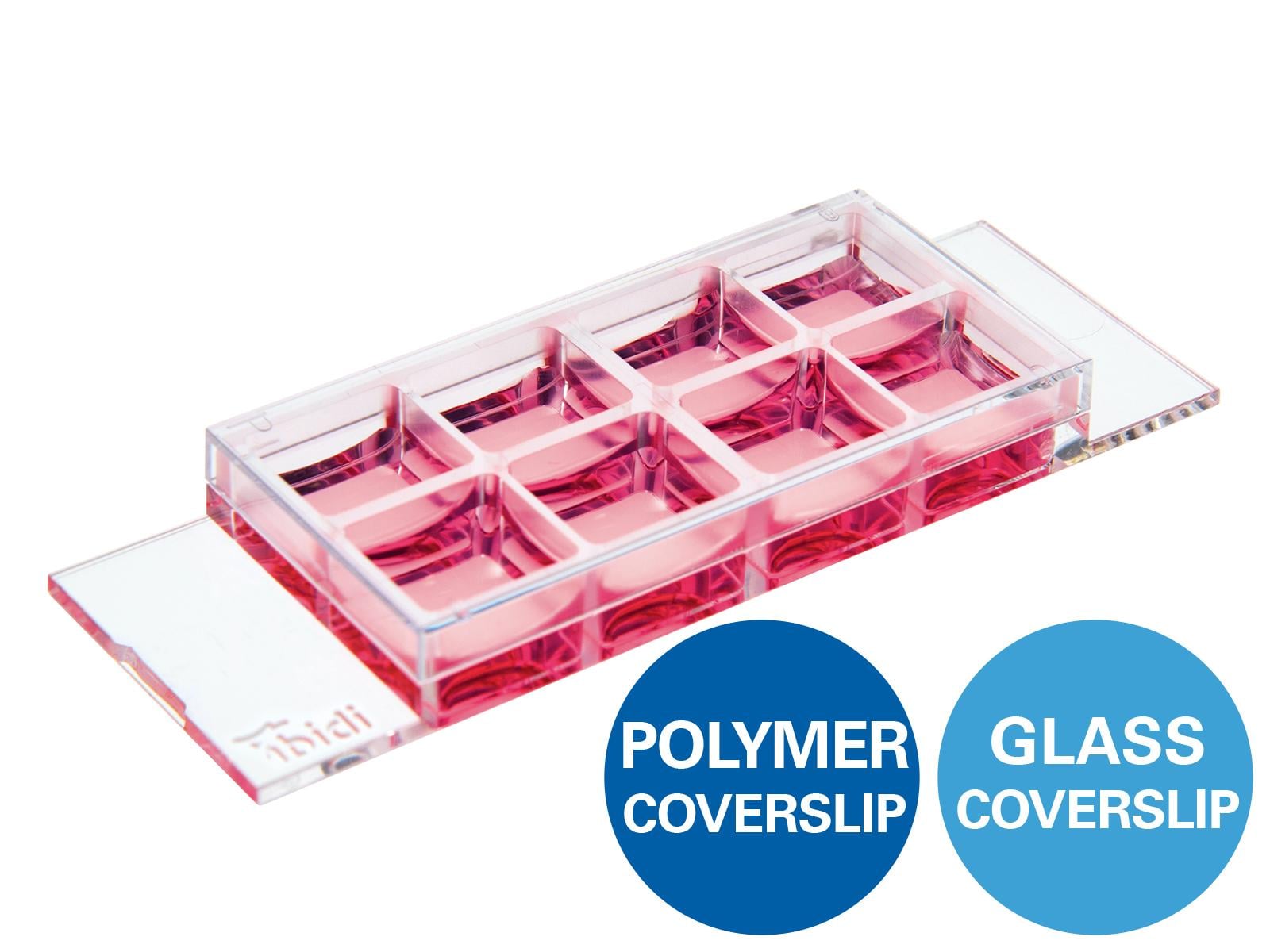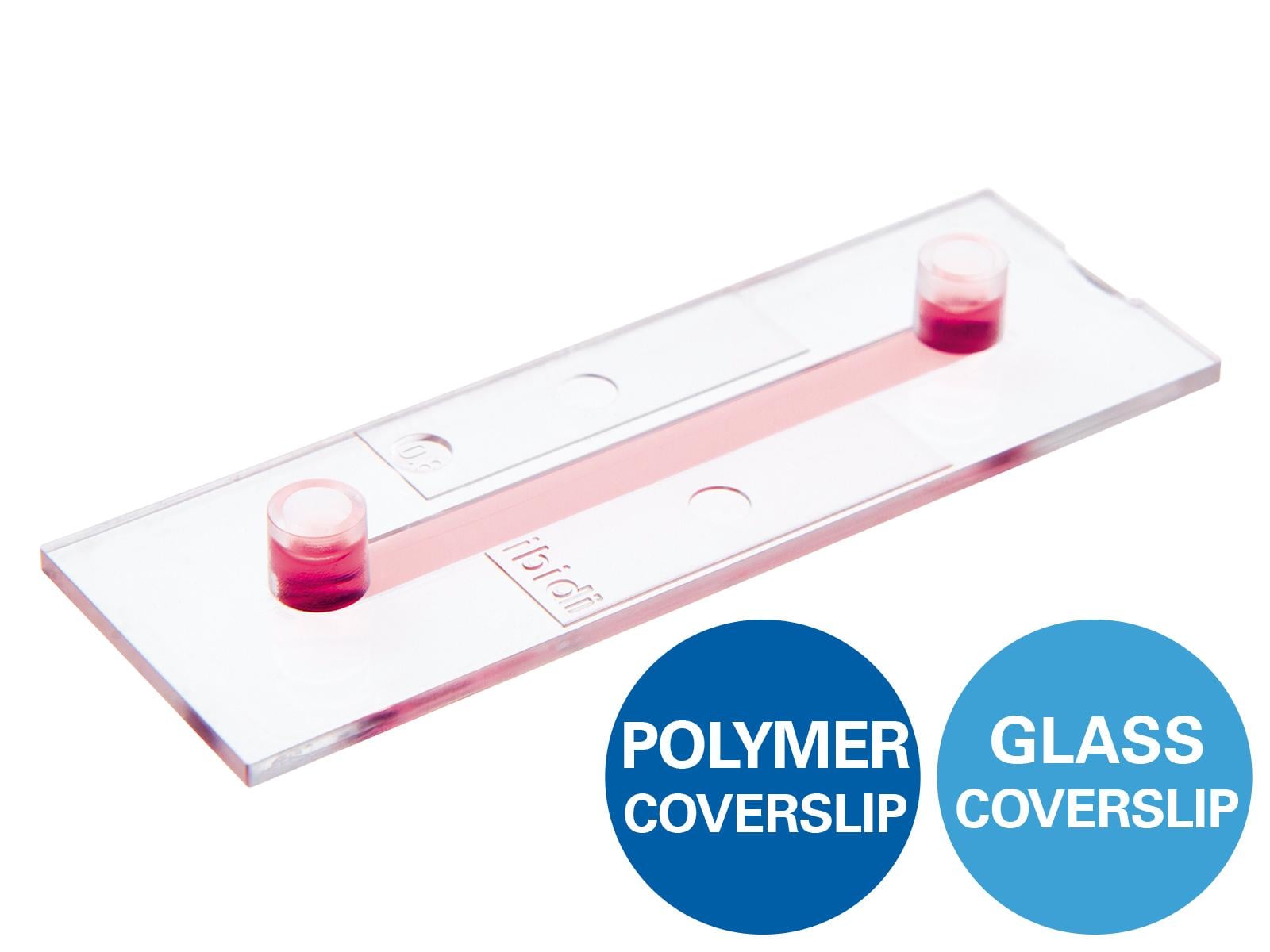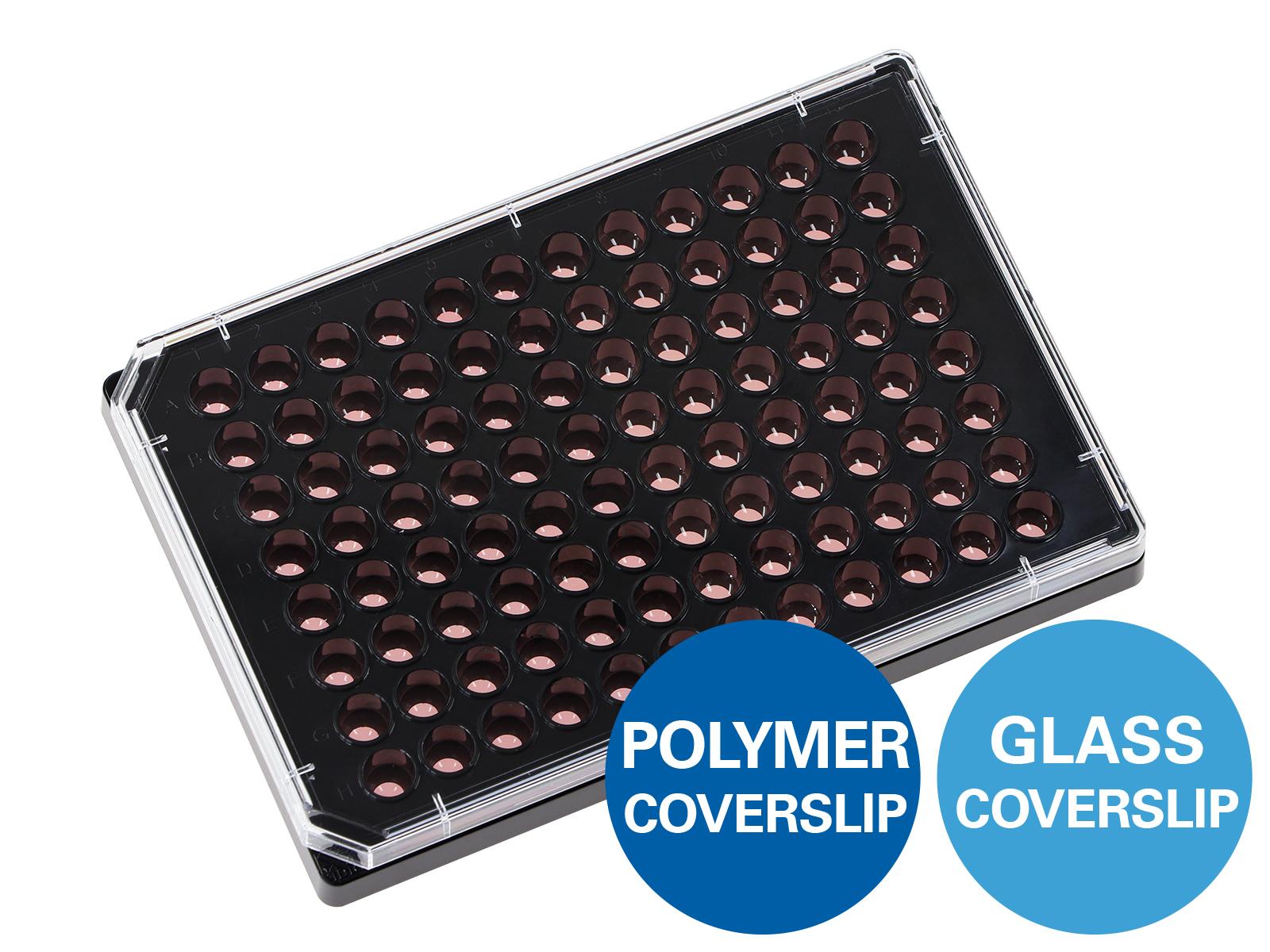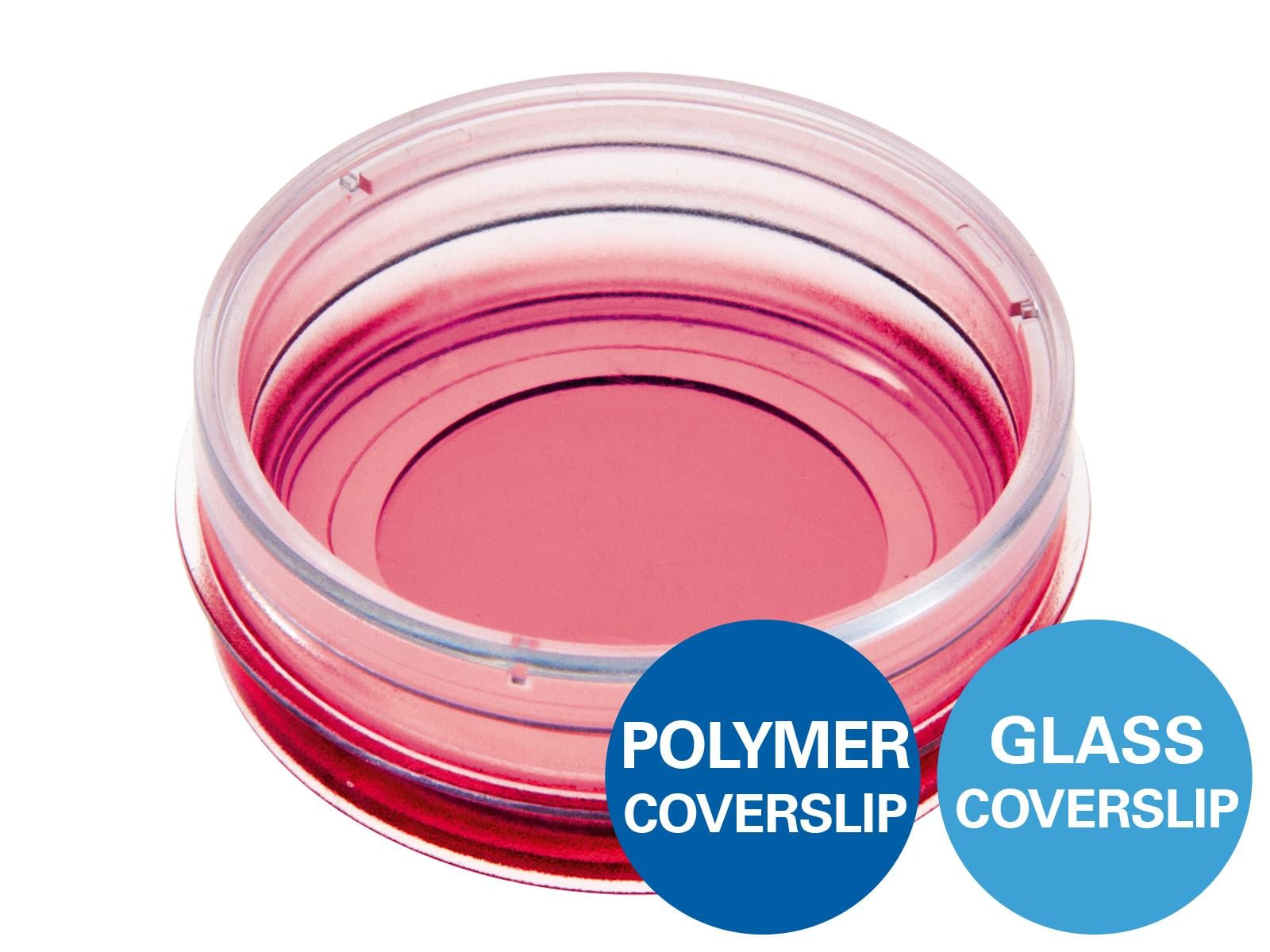From Concept to Application:
ibidi Sponsors the Nano Innovation Award 2024 for Three Young Scientists
The LMU Center for NanoScience and four LMU spin-off companies, including ibidi, jointly award innovative doctoral theses on nanotechnology.
Three doctoral students from Munich and Erlangen, Germany, have been honored with this year's Nano Innovation Award by the Center for NanoScience (CeNS). This award, which recognizes application-oriented research in nanosciences, is endowed with €9,000. The winners were selected by a panel of experts from industry and academia from among applicants across Bavaria.
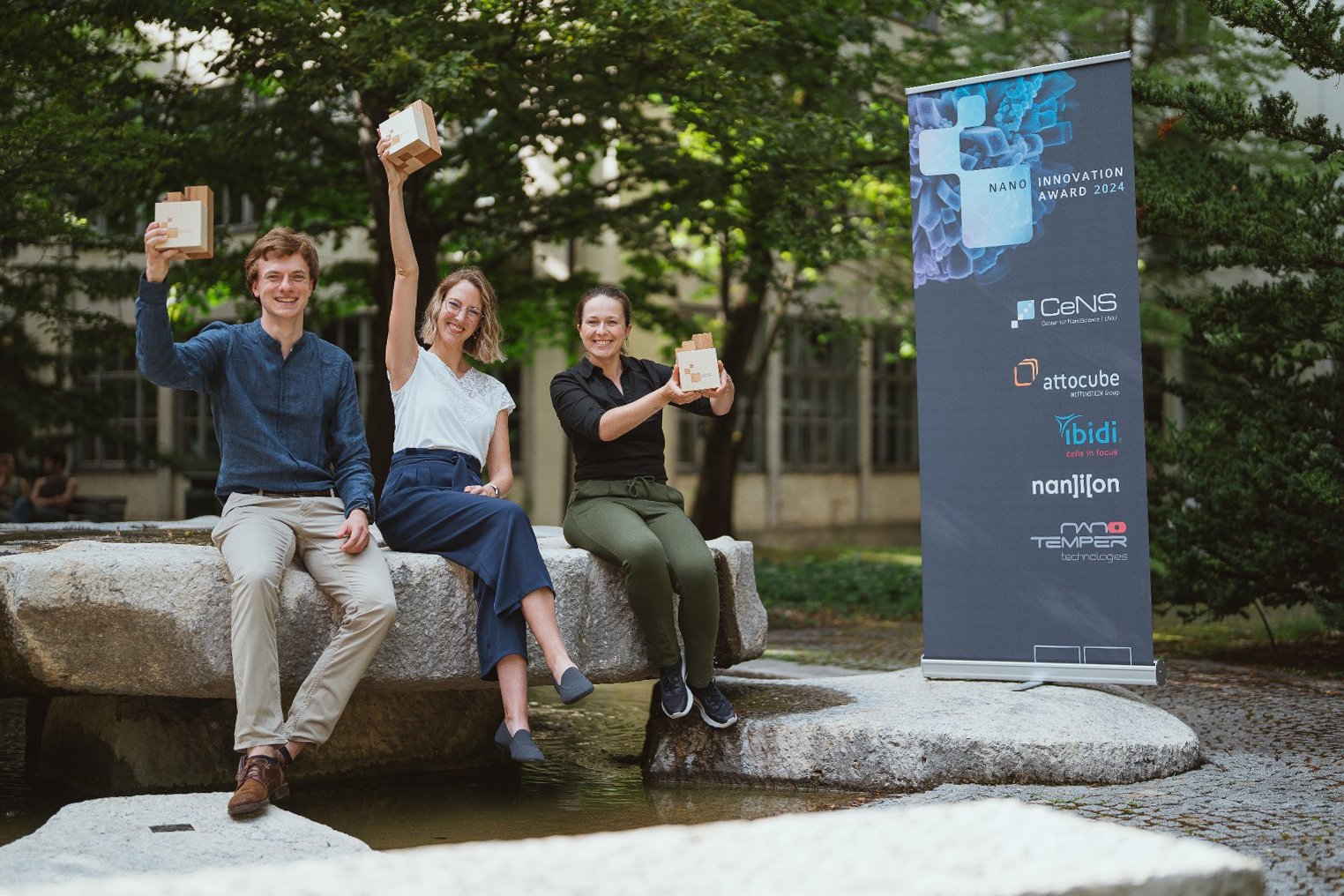
The winners of the Nano Innovation Award 2024.
From left to right: Andreas Gritsch, Cornelia Holler, Leonie Wittmann
While most scientific awards honor outstanding results in fundamental research, the Nano Innovation Award stands out for its focus on innovation and practical application potential. In collaboration with CeNS, the companies attocube systems, ibidi, Nanion Technologies, and NanoTemper Technologies, annually present this award to talented and creative young scientists, whose results are not only of interest for fundamental research, but also promise technological applications.
The first prize was awarded to Cornelia Holler from the Max Planck Institute for the Science of Light in Erlangen. She developed μKiss, a simple and contact-free method to deliver chemical and biological materials with high precision and in minute quantities to the membrane of a single cell. This new technique, published in Nature Methods, offers tremendous potential for a wide range of applications. Cornelia Holler and her colleagues plan to start a company to commercialize μKiss.
The second prize went to Andreas Gritsch from the Max Planck Institute of Quantum Optics and Technical University (TU) Munich. He developed a novel experimental platform for quantum networks by integrating erbium dopants into photonic silicon nanostructures. Andreas' groundbreaking research paves new paths in quantum information technology, with promising potential for scalable quantum network nodes. A patent has already been filed for future practical applications of his results, and initial steps toward commercialization have been taken.
Leonie Wittmann from TU Munich won third place. She impressed the jury with her project that developed a method for separating individual yeast cells by age using magnetic nanoparticles. Yeast is used in various industrial applications and food production. With Leonie's method, old yeast cells can be easily sorted out, ensuring that only the most productive cells are used. This could make industrial yeast-based processes more efficient and sustainable in the future.
"The applications for this year's Nano Innovation Award from across Bavaria were of remarkable quality, both in terms of science and application potential. Congratulations to all participants and the three winners," said Professor Emiliano Cortés, CeNS board member at LMU Munich and member of the jury.

